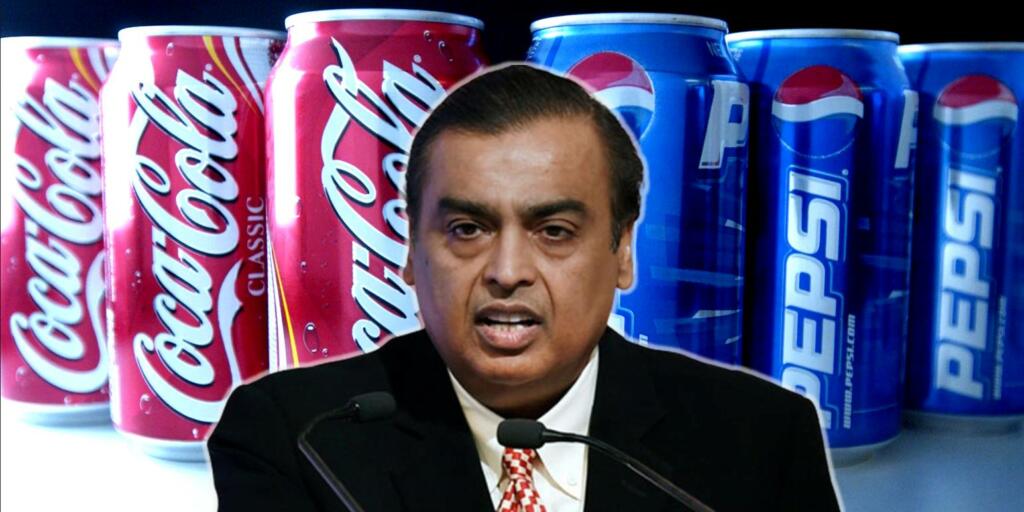Earlier the Indian market, especially the consumer goods market was monopolized by multinational foreign companies. But the recent wave of start-ups and entrepreneurship is now giving a head-on collision to well-established decades-old multinational giants. And, the big Indian businesses like Tata, Ambani, Adani, Birla, and Mahindra are providing a great financial as well as pre-established supply chain mechanism to support these young entrepreneurs.
Acquisition & Joint Venture
In a recent addition to this, Ambani’s Reliance is ready to acquire and form a joint venture partnership with dozens of small grocery and non-food brands to challenge the foreign giants like Unilever, PepsiCo, Nestle, and Coca-Cola. According to a report, “Reliance is in the final stages of negotiations with around 30 popular niche local consumer brands to fully acquire them or form joint venture partnerships for sales”.
The plan is to build a pool of 50-60 grocery, household, and personal care brands within six months, and with the already established Reliance supermarket store & its own e-commerce platform, JioMart, the products will be pushed into the local market under the Reliance Retail Consumer brands.
Read More: Reliance has taken it upon itself to make India a global manufacturing giant
Reliance: A house of brands
According to a report, the Indian retail market is projected to reach about $2 trillion by 2032. Further, the growing purchasing power with the expansion of the economy will provide a range of opportunities for retail business.
Counting on the future prospects of consumer growth, Reliance is on a roll to acquire the household consumer-focused companies. The recent list of acquisitions includes companies like Balaji Telefilms, EdCast, Embibe, Saavn, Radsys, Eros, Hathway, Fynd, and Purple Panda. From education to shopping, companies involved in every domain of consumer businesses are being acquired by Reliance which has now become a house of brands.
Read More: Reliance’s masterplan to crush Amazon looks pretty solid
Breaking the monopoly of Multinational Brands
For decades, companies like Hindustan Unilever, ITC, Nestle, Britannia, PepsiCo, and Coca-Cola have dominated the fast-moving consumer goods (FMCG) market in India. Every household uses items like home care, beauty care, foods, and refreshment that are produced by some multinational companies and leave little room for Indian companies to expand.
But with the democratization of finance and technology, Indian entrepreneurs are ready to take on the monopoly of these multinational companies in consumer goods businesses.
The first and foremost thing to establish a company is to have some finance to start manufacturing but the expansion of financial technology has solved this problem. With increasing investing habits, money has started to circulate to create value through venture capital, equity, shares, stocks, or loans. It has almost sorted the problem of finance in the entrepreneurship market.
Read More: Reliance is fighting Amazon and Walmart’s unethical trade practices and winning
The acquisitions and joint venture partnership of Reliance with small companies will provide a large base of customers to these niche companies. The support of finances, logistics, managerial expertise, and Reliance’s brand name will further enhance the growth of the entrepreneurship culture in the country and the trend will ultimately help in expanding India’s economy.
